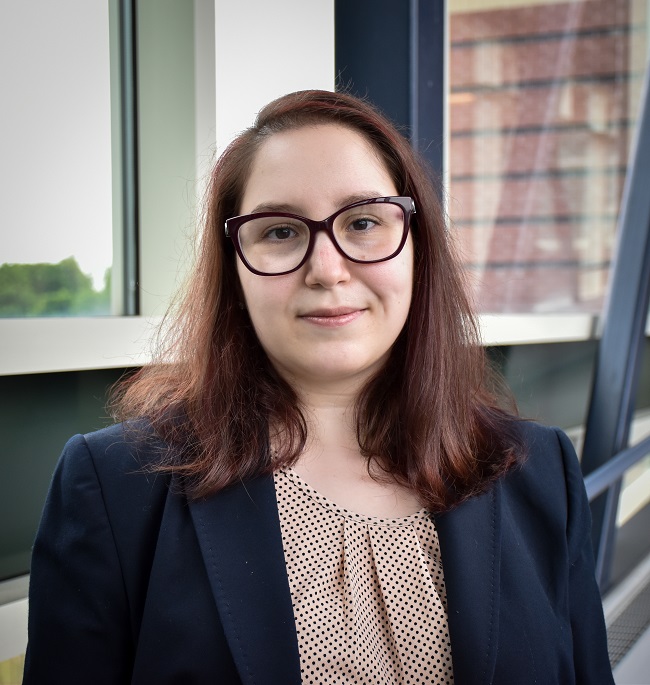Clarkson University Assistant Professor of Chemical & Biomolecular Engineering Bethany Almeida has received a $200,000 National Science Foundation Engineering Research Initiation (ERI) grant.

Her project, “Investigating the Fundamental Interactions between Mesenchymal Stem Cells and Hydrogels – Towards a Stem Cell-Biomaterial Therapy for Osteoarthritis,” will enhance Clarkson’s curriculum through undergraduate research opportunities as well as a new course.
The project will also introduce local K-12 students to the exciting possibilities of careers in biomedical engineering through hands-on demonstrations for the North Country Children’s Museum in Potsdam.
Human mesenchymal stem cells have the promise to treat a wide variety of human disease conditions due to the cells’ ability to transform into many mature cell types, including cartilage cells.
Research has shown good preliminary results toward treating osteoarthritis, a degenerative joint disorder caused by destruction of articular cartilage, and forming new cartilage. However, treatment often fails in actual clinical scenarios, perhaps due to the complex stem cell growth conditions or microenvironment influences.
In her research, Almeida will identify and study such limitations, looking for a road to breakthrough therapy. The project will create a composite hydrogel loaded with human mesenchymal stem cells and chemical molecules known to influence cartilage regeneration in order to study the efficacy of these stem cells for potential treatments of osteoarthritis.
“The question we are addressing is what is the dynamic interrelationship between the physical properties of the hydrogel and the cell microenvironment,” says Almeida. “For example, how do the physical material properties of the hydrogels affect stem cell behavior and how do stem cell culture conditions – like temperature, proteins, and enzyme production – affect the properties of the hydrogels over time?
“By addressing this, we hope to improve our understanding of the hydrogel-stem cell relationship, so that we can better design and fabricate a biomaterial-stem cell therapy for Osteoarthritis.”
The results of this project may lead to improved stem cell-based therapies for conditions like osteoarthritis and possibly have wide broader impacts related to bone repair needs and wound healing.
The NSF ERI program supports new investigators as they initiate their research programs and advance in their careers as researchers, educators, and innovators.